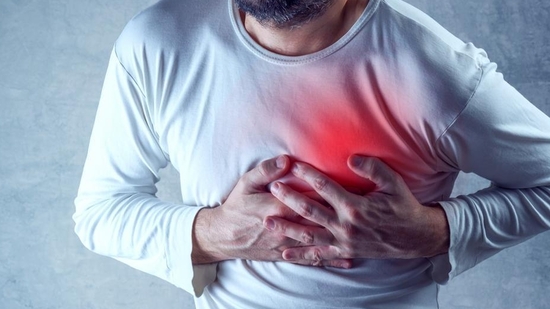With a deskbound lifestyle, lack of exercise and fast food being a regular amongst most, risks of premature heart diseases are high. There are many types of heart ailments. The most common ones are:

Angina – chest pain from paucity of blood flow.
Coronary artery disease (CAD) – a result of cholesterol deposits, the heart is unable to receive adequate blood, oxygen, and nutrients from coronary arteries.
Arrhythmia – a complication with the frequency or pace of your heartbeat.
Lifestyle Choices and Heart Disease
Unhealthy habits like a poor diet, inertia, smoking, and consumption of alcohol are responsible for increasing the risk of heart disease. “Diets rich in trans fats, cholesterol, and sodium promote plaque buildup in the arteries, significantly heightening the chances of heart attacks. A sedentary lifestyle closely linked to obesity, hypertension, and diabetes further elevate the risk of cardiovascular disease,” warns Dr Ranga Reddy BVA, Consultant Cardiologist, Apollo Hospitals Jubilee Hills, Hyderabad. Chronic stress compounds these risks by raising both heart rate and blood pressure. Embrace a stress-free, wholesome lifestyle with a balanced diet, and committed fitness routines to keep cardiac problems at bay.

Prevention of heart attack risks in young adults
Cardiac issues are inadvertently ascribed to old age. With peer pressure and mounting anxieties in academics and careers, even the younger generation needs to make regular check ups a part of their lives.
According to Dr Reddy, “Screenings for blood pressure, cholesterol, and glucose levels serve as essential early indicators of cardiovascular problems, while assessing family history and lifestyle choices help pinpoint those at higher risk. Focusing on nutrition, weight management and stress reduction are particularly effective in mitigating heart disease risk in this group.”
Congenital Heart Disease (CHD)
Congenital Heart Disease (CHD) is a rare and abnormal heart problem in adults, says Dr Snehal Kulkarni, Director of Pediatric Cardiology at Fortis Hospital Mulund. CHD involves structural heart defects since birth, such as holes in the heart, narrowing of heart valves or arteries, or abnormal connections within the heart. “Unlike heart attacks, which are typically caused by blockages in the coronary arteries, CHD does not lead to these types of cardiac events. Adults experiencing heart attacks often have chest pain accompanied by sweating, however, individuals with CHD typically exhibit different symptoms like breathlessness on exertion and syncope or excessive tiredness,” reveals Dr Kulkarni.

Advancement In Treating Structural Heart Disease
The age of cutting-edge technology has redefined healthcare in the field of cardiology. With the progress in technology and expertise, intricate and complex procedures are carried out through transcatheter approach. Dr. Ankeet Dedhia, Consultant Cardiology, S. L. Raheja Hospital, Mahim-Fortis Associate, says, “Many procedures like TAVR (Transcatheter Aortic Valve Replacement) and TMVR (Transcatheter Mitral Valve Replacement) have made things very simple for our patients. With the new advancements, these procedures have given excellent and positive response without surgeries.”


